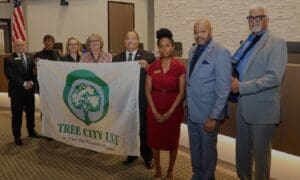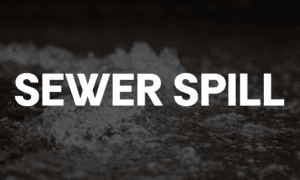If there is to be another sales tax vote for education this fall, conspicuously missing will be any mention of synthetic turf for the five high school stadiums. The turf idea is dead on arrival.
The Fayette County Board of Education on April 16 heard the initial presentation for a continuation of the tax that could be put before voters this coming November. The question to be decided first by the board: Should there be a continuation of the Fayette County ESPLOST to fund the school system’s capital needs?
The school system’s ESPLOST committee recommended projects under four categories:
• Curriculum/Instruction/Technology: Continuing to enhance the existing technology infrastructure as well as upgrading servers, switches, wiring, data center equipment, phone systems and workstations. Providing computing devices, audio/visual equipment, interactive classroom equipment, printers and copiers for classrooms and schools, curriculum media, including textbooks and digital content, equipment, software and hardware for the Special Education program, Audiology services and the Vision Impaired program, and equipment and software and hardware for the Career and Technical Education program.
• Maintenance/Renovations/Modifications: Maintenance projects including but not limited to parking lot repaving, drainage enhancements, fencing repairs, playground equipment, elementary gymnasium floor replacement, flooring, painting, HVAC, lighting, suspended ceiling replacement, plumbing and roofing at existing school and administrative buildings. Modification of a middle school track to accommodate middle school track events, track resurfacing, replacement and repair of physical education/athletic facility bleachers and the construction of tennis courts.
Superintendent Jeff Bearden said 52 percent of respondents in a recent survey did not agree with including the modification of playing fields at each high school stadium with synthetic turf so he recommended that the item not be included in the ESPLOST initiative.
• Safety and Support: Continuing to improve school safety by expanding access controls and surveillance cameras. Providing support functions, including buses, vehicles, equipment, classroom and administrative furniture, renovation for accessibility for the disabled, program administrative costs including audit fees and personnel costs incidental to the administration of the SPLOST projects if deemed to be an eligible expenditure.
• Debt service: Continuing to provide debt service towards existing general obligation debt not to exceed $10 million.
The tentative maximum collection ceiling for the proposed ESPLOST continuation was not announced though Comptroller Laura Brock said it is hoped that, depending on future economic conditions, that ceiling might reach $105 million.
The current ESPLOST was approved by voters in November 2008 and became effective in April 2009. It carried a maximum collection ceiling of $115 million and included a five-year term. It is anticipated that the current ESPLOST might reach $95 million in revenues.
Bearden said the proposal will be reviewed again at the board’s May meeting.












Leave a Comment
You must be logged in to post a comment.